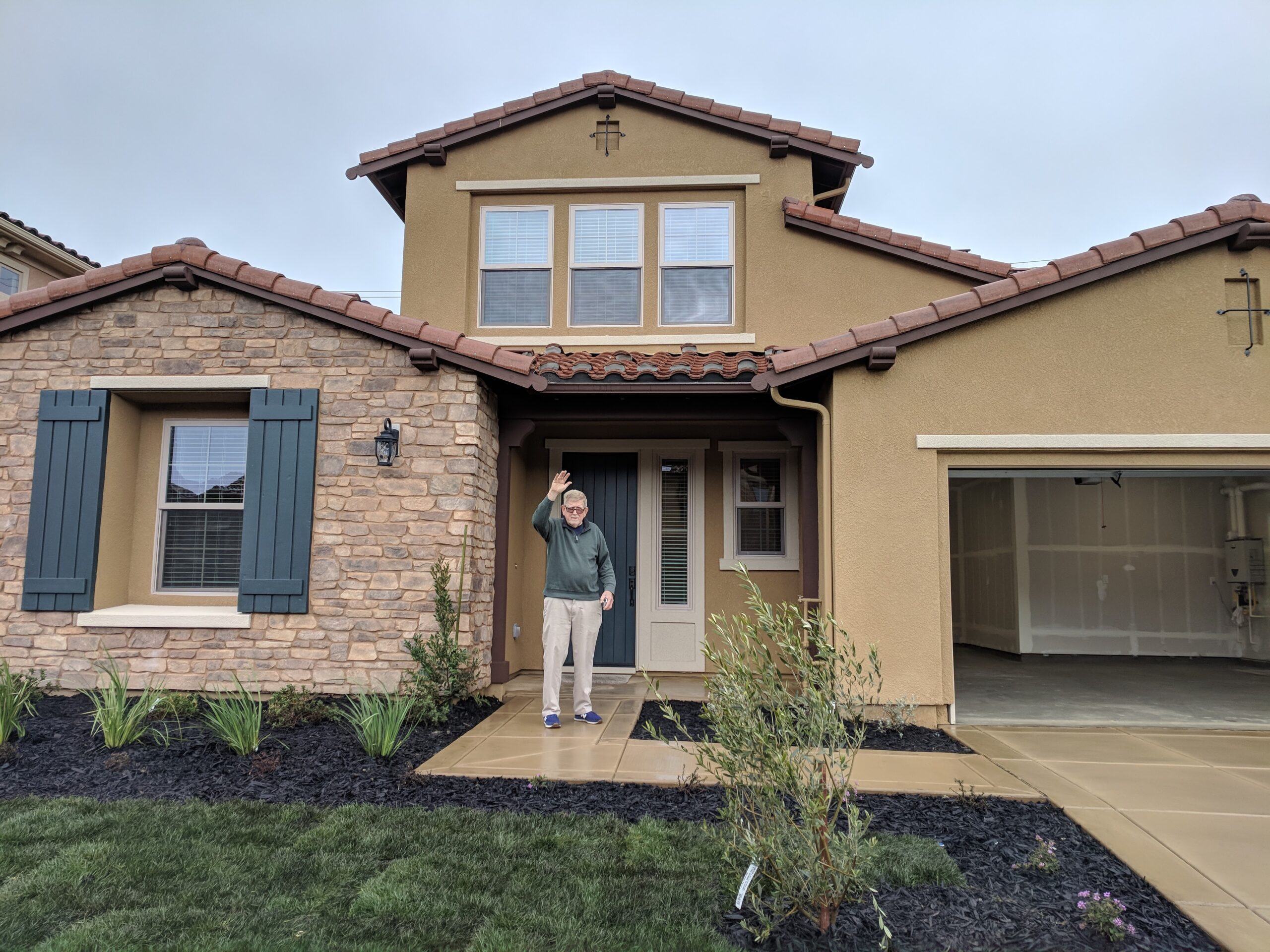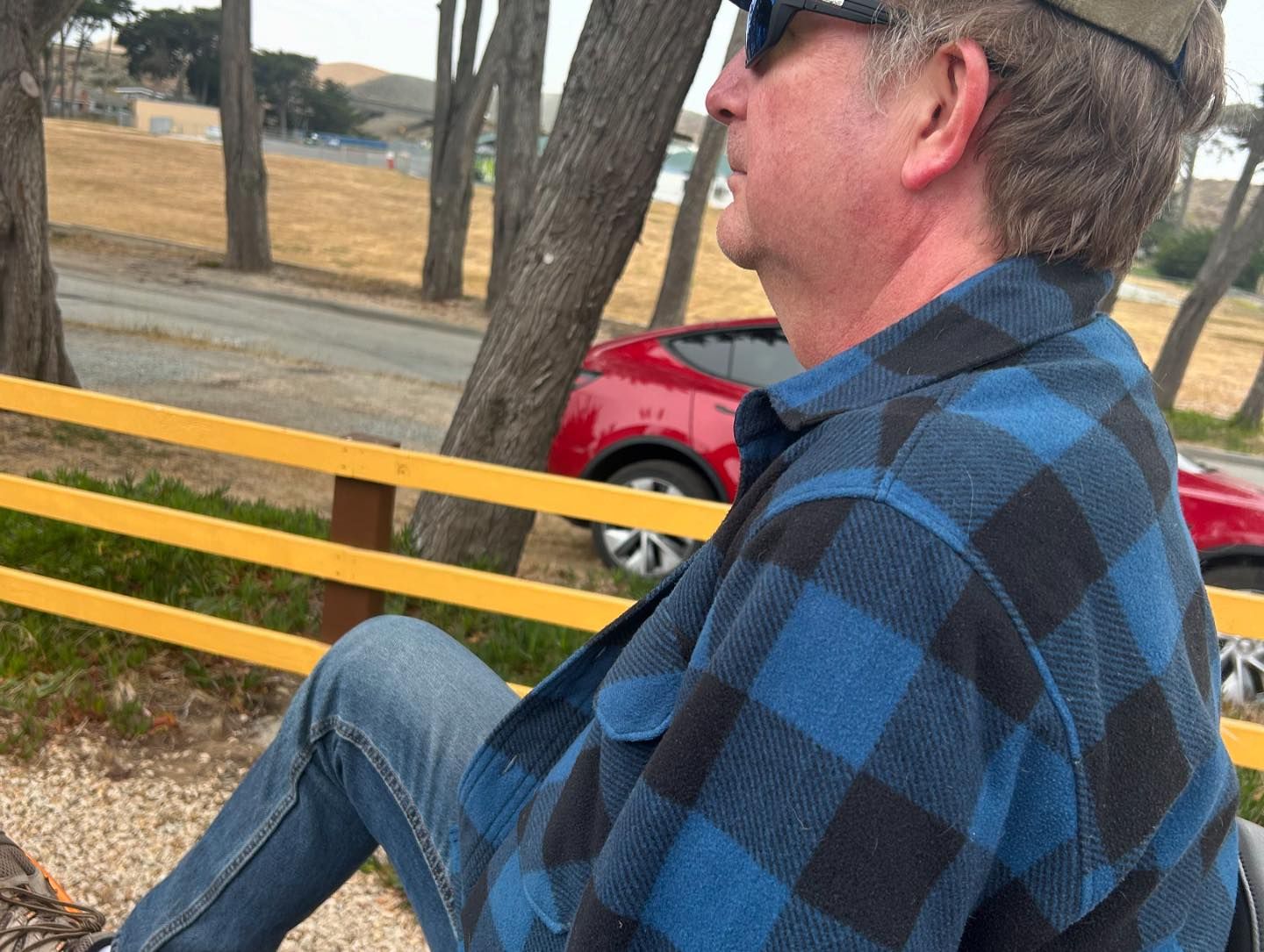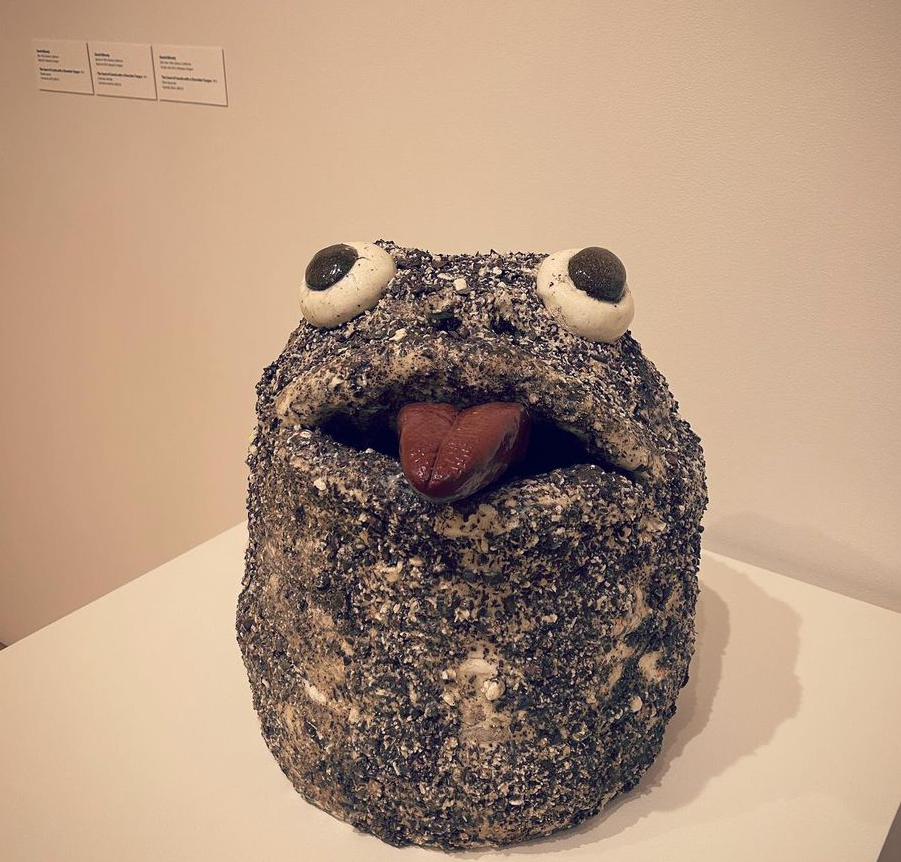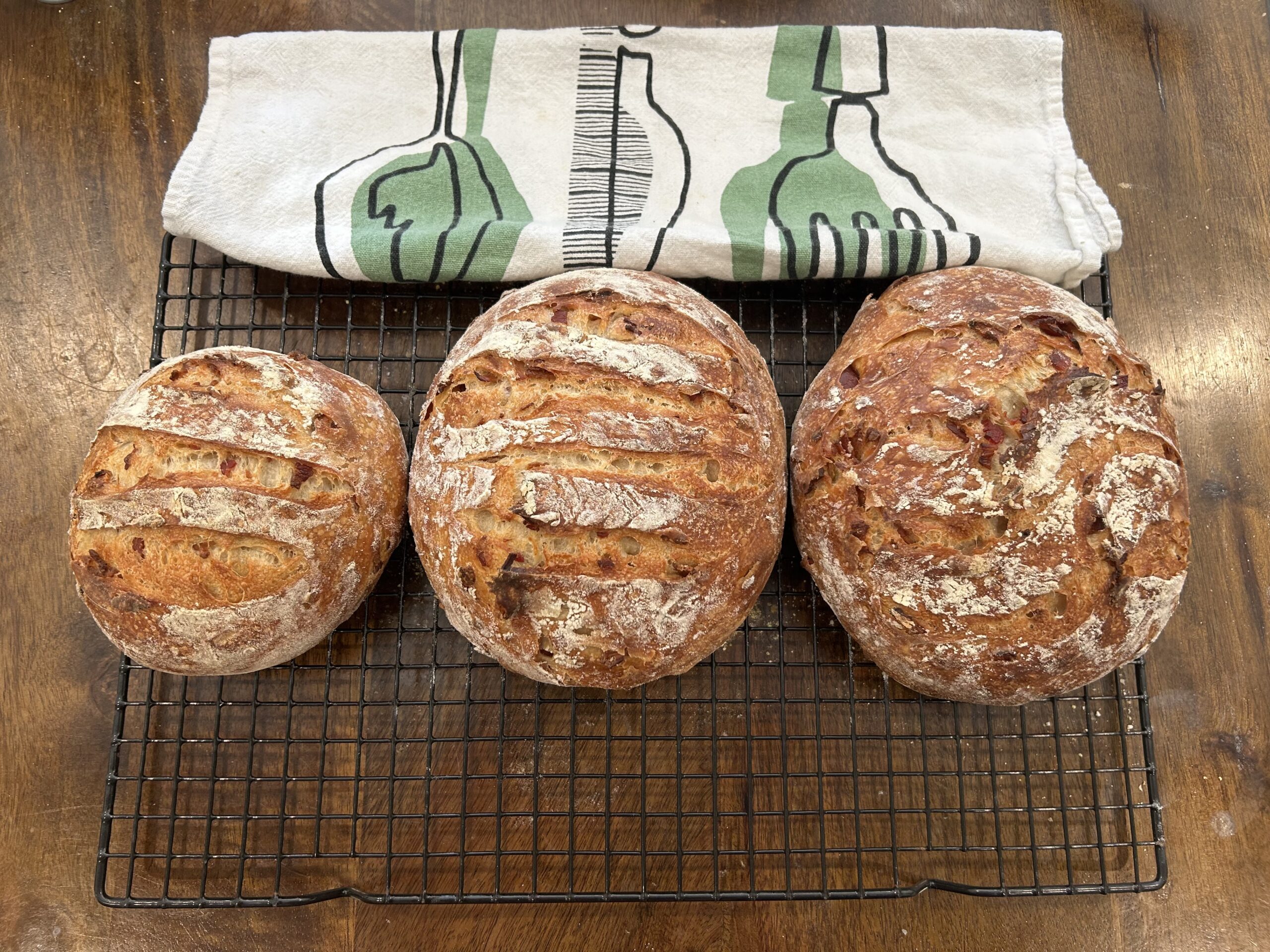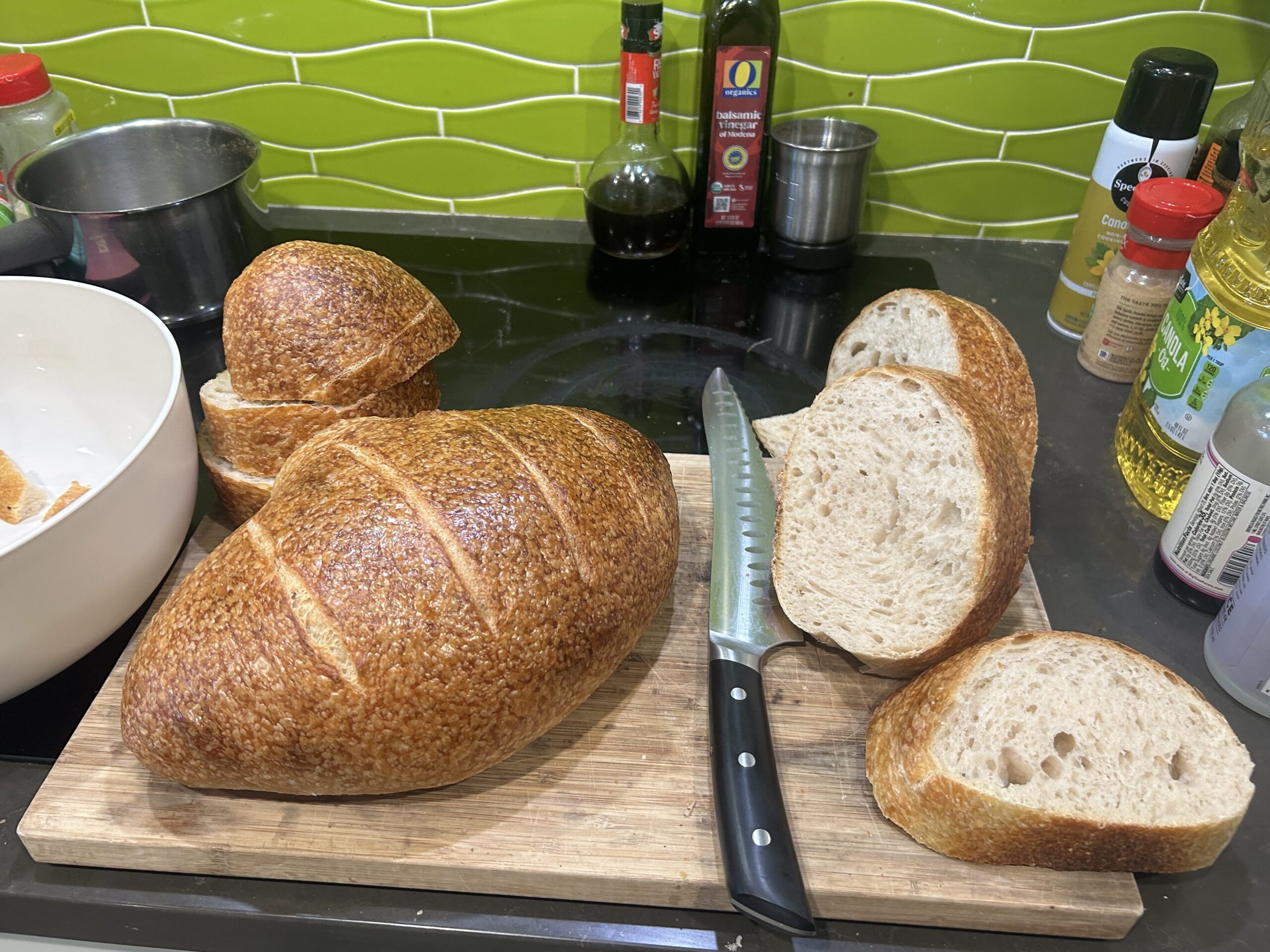A house named hope

February 2019. My dad in front of the Manteca house.
Four years ago today, on April 22, 2019, I sat in a Korean restaurant having a good, very spicy lunch with my friend Ann. I received a call on my cell phone that felt surreal, though I knew it had been coming for a long time.
“She’s gone. Your mother–she’s gone.”
It was from one of my mother’s caregivers, Lee. She and my dad were there with my mom, and Lee had noticed that she had just stopped. Stopped moving. Stopped breathing.
On the long drive out to the Central Valley, the news felt unreal to me. Partly because I had already said goodbye to my mother. She had been diagnosed with vascular dementia thirteen years before. Over that time, light after light shut down in her brain–like someone preparing to leave for the night in a very slow and deliberate way.
Over that long time, we cried, got mad (because getting mad is a form of grief) and spent a lot of time in denial. But ultimately, nothing stopped the progression, though my dad always had hope that some new drug or large amounts of turmeric would slow that down. Maybe it did. Thirteen years is a very long time. She got kicked off hospice twice.
That day she died I drove out to Manteca to the house they’d only moved to two months earlier. My father had sold their more expensive home in Pleasanton, thinking the profits would go towards my mother’s long-term care in their new home in the Central Valley. He expected her to live a lot longer. The rest of us didn’t believe that would happen, but my father was a determined man.
Denial is also a form of grief, because it knows the truth but is not ready to live like it’s true.
I parked in front of the new house, where two mortuary employees in tuxedos stood in front of the garage, hands behind their backs, as if they were guarding the place. Bouncers for a nightclub of the dead. I wasn’t sure why they were doing it, but it touched me. My mom was the light of our family: a kind, funny and engaging woman. I loved that they were giving her that show of respect.
After they took my mother to the mortuary back in Pleasanton, I sat with my father, but we didn’t talk much. The Manteca house felt empty and sterile. The reason for any of us being there was gone. This home had meant hope for my dad, hope that he could afford some form of care or remedy that would reverse my mom’s decline and keep her with him forever. He was a desperate man. He would have done or paid anything for that.
My dad’s first instinct was to busy himself with arrangements. My mother would have the best casket—it would be blue, her favorite color. By arrangement with the mortuary, some guy named Pastor Steve would preside at the service. He would bring his boom box and play her favorite songs graveside. This actually made me laugh. Laughter is a form of grief, not only because it’s an act of defense, but because death feels so absurd: someone is there, then suddenly they’re not. Pastor Steve would turn out to be a good choice–even though he reminded me of John Cusack holding up a boom box in the movie Say Anything. After all the words at the service were said, he pushed the button and started playing Barry Manilow.
After complications from a broken hip, my father died last October. My brother and younger sister were with him in the hospital when he passed. They said they saw a look of peace on his face they’ll never forget. It’s hard to feel devastated about losing someone when it looks like they’ve finally gotten what they wanted.
This week, my sister and I signed escrow papers for the sale of the house in Manteca. For a month, all of us siblings drove back and forth to the Central Valley, cleaned, managed my dad’s finances, hauled things to the dump and took home endless boxes of memorabilia and photographs that we’re still figuring out what to do with.
Then we put the house up for sale, this house that had never been our home.
The buyer is a man from India, who’s waiting for his new wife to join him in the US. They’ll be starting a family. His parents will move in with them. He put his offer in first, but we didn’t accept it till the better-financed buyer we accepted backed out. This young man upped his offer. Like my father, he’s a determined man, holding on with both hands to what he wants and not letting go. He desperately wants the house, and that came through in the statements from his realtor.
My sister and I kind of knew from the beginning that we wanted him to have it. This house is his hope for his family and their future.
It seemed like the right thing.

Mom and dad’s wedding 1958

